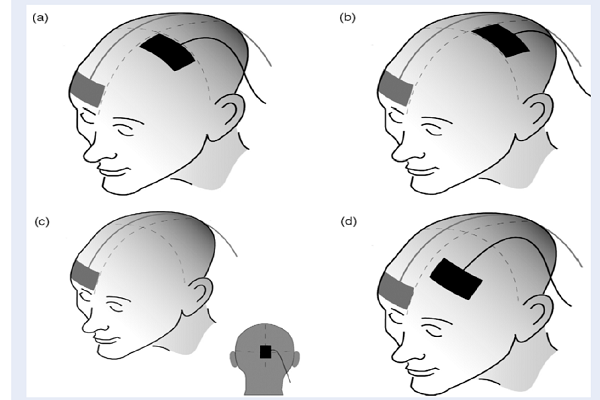Anodal transcranial direct current stimulation enhances positive changes in movement functions, visual attention and depression of patients with chronic ischemic stroke: A clinical trial
DOI:
https://doi.org/10.15419/bmrat.v5i11.503Keywords:
Cathodic & anodic, Neurological disorders, Stroke, tDCSAbstract
Introduction: Stroke is one of the most serious and debilitating diseases in our society. Stroke survivors can suffer several neurological impairments. They typically show pathological changes in neural functions of brain areas. Transcranial direct current stimulation (tDCS) can be applied to modify cerebral excitability and has been recently applied in the treatment of neuropsychological and neurological disorders. The aim of the study herein was to evaluate changes in movement and cognitive functions of chronic ischemic stroke patients using anodic and cathodic tDCS.
Method: In this clinical trial, 100 patients with chronic ischemic stroke were divided in 4 groups (control, sham, anodic tDCS, and cathodic tDCS; n=25 per group). The patients underwent routine treatment and received the same tDCS protocol (3 times per week of 30-min sessions during one month). Movement and cognitive functions were evaluated using the NIHSS Scale & Trail Making Test and the Beck Test, before and after 1 and 3 months of tDCS sessions. All data were analyzed by 2-way repeated measures ANOVA using SPSS program (version 18).
Results: The results showed that there were significant increases (P<0.001) in NIHSS score and Barthel index between anodic group versus control, sham, or cathodic group, at various timepoints (before vs. 1 month after tDCS, 1 month vs. 3 months after tDCS, and before vs. 3 months after tDCS). Furthermore, there were significant decreases (P<0.001) between anodic group versus control, sham, or cathodic group, at the various timepoints (before vs. 1 month after tDCS, 1 month vs. 3 months after tDCS, and before vs. 3 months after tDCS).
Conclusion: Anodic tDCS has advantageous effects on movement and cognitive rehabilitation in stroke patients, but future studies are needed to further discern the differences and develop precise treatment protocols.

Downloads
Published
Issue
Section
License
Copyright The Author(s) 2017. This article is published with open access by BioMedPress. This article is distributed under the terms of the Creative Commons Attribution License (CC-BY 4.0) which permits any use, distribution, and reproduction in any medium, provided the original author(s) and the source are credited.
